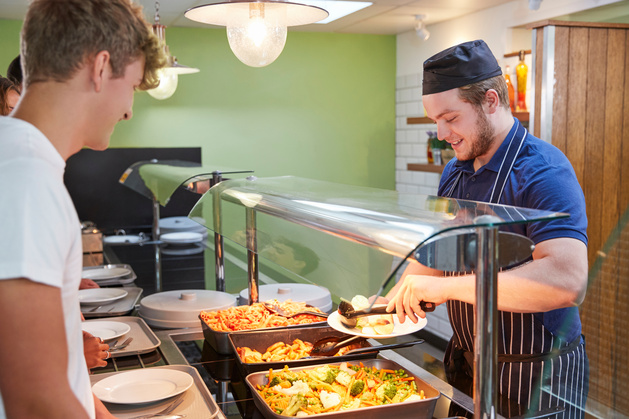FATE
From Awareness to Engagement: Young Consumers in a Sustainable Food System

FATE targets the engagement of young consumers with sustainable food systems, in collaboration with high school canteens that are about to change their offers to more organic and local produce.
Start
01. Sep 2023
End
31. Dec 2027
Funded by
Norwegian Research Council NFR
Cooperation
Telemarkforsking (Telemark Research Institute), Østfold county municipality, Guldkorn, Matvalget and Klimato.
Project Manager(s):
Other Participants:
Paula Varela-Tomasco
Antje Gonera
Laura Carraresi
Ingunn Berget
Background
The food systems need a transformation, and young consumers can play an important role by leading as examples. With their adult lives ahead of them, adolescents have long-term impact on both the climate and others; this age group is also more open to dietary changes. FATE will pursue knowledge on the best means to improve young consumers’ awareness of ecologically sound food consumption and their engagement with sustainable food systems.
The project will also facilitate collaboration and co-creation between those with an interest in the canteen offer, including students, personnel, and producers, in order to involve them in the transition and look into new opportunities.
Goal
FATE aims to promote engagement and lead young mindsets in a sustainable direction, thereby contributing to food system changes.
What we do
FATE tackles the challenge of engaging young consumers in the food systems by studying how different mindsets operate in the context of sustainability, and further investigate the best means to shift their mindsets.
People differ in how they view their own potential for improvement, also with respect to long-term thinking about the climate. Shifting mindsets is no easy feat, it requires an understanding of the structure and functions, it requires a long-term perspective, and it requires differential ways to reach out. As its starting point, FATE will systematise knowledge on sustainability mindsets into a measure that can identify consumer profiles reflecting distinct mindsets. FATE further seeks to transform the knowledge into action through a living lab, where representatives for the students, school, canteens, and local producers will experiment with co-creative activities. Among others, they will test ideas for the canteen transitions and explore new opportunities for the small businesses and canteens.
User participation is vital in fostering commitment, dedication, and engagement, as it promotes ownership to the end result. Accordingly, the living lab activities will build on the planned canteen changes, to include students and personell in the design of what will take place. FATE will thereafter implement the co-created ideas from the living lab as a student-directed intervention encouraging new ways to think, feel, and act.
The students are on the verge of their own transitions to adult life, which is a period characterised by exploration and opportunities for change. Thus, FATE aims for in-depth understanding of prominent long-term factors that come into play when shifting young consumers’ mindsets towards healthier and more sustainable food consumption.
This is our partners
Telemarksforskning, Østfold fylkeskommune, Matvalget, Klimato og Guldkorn.